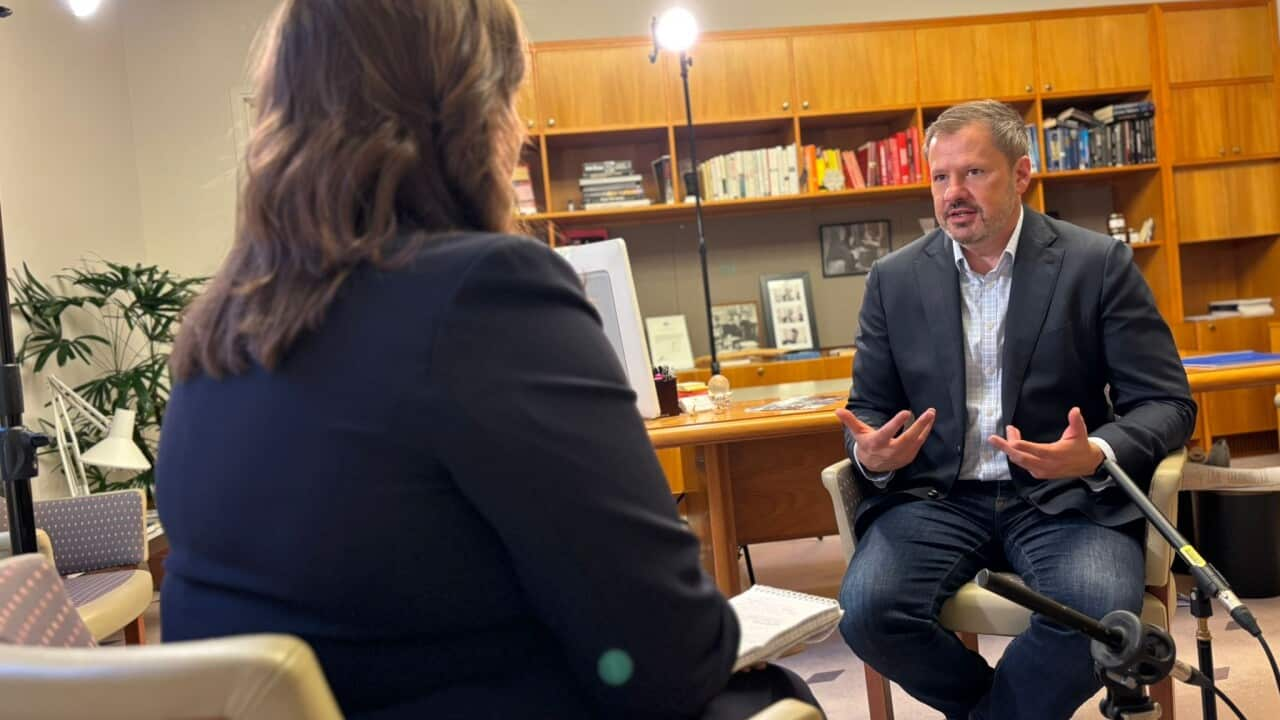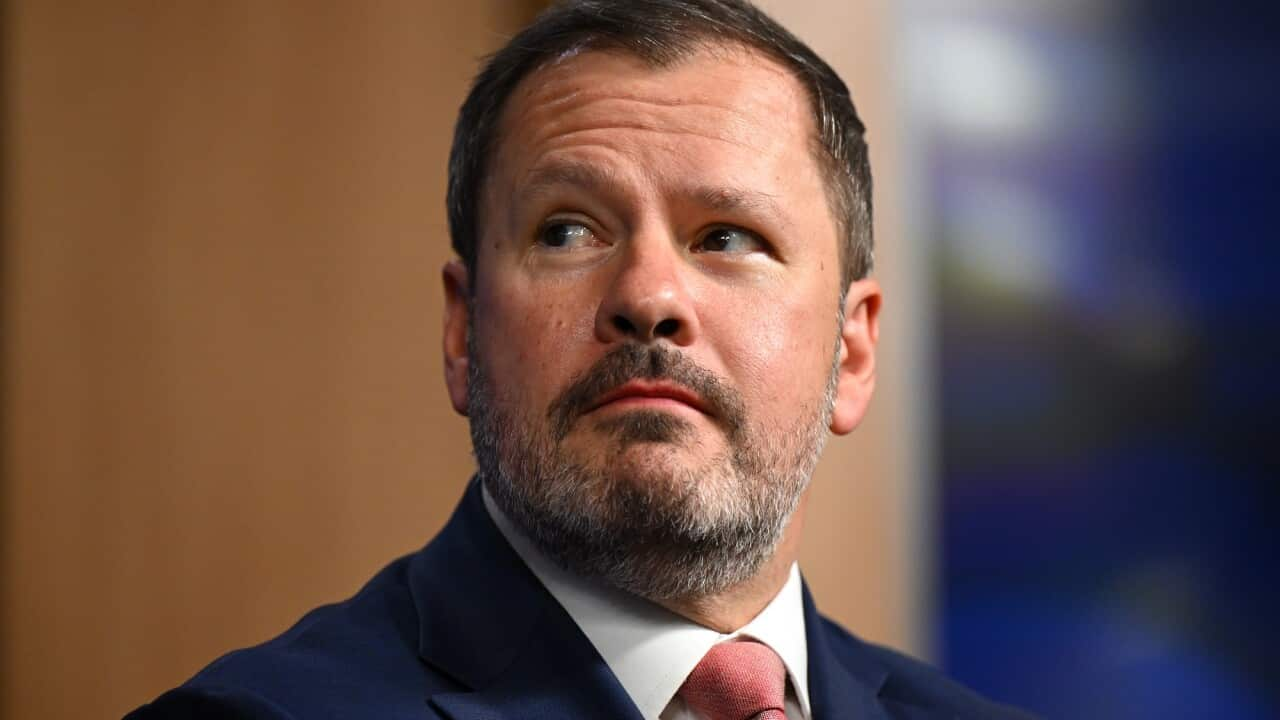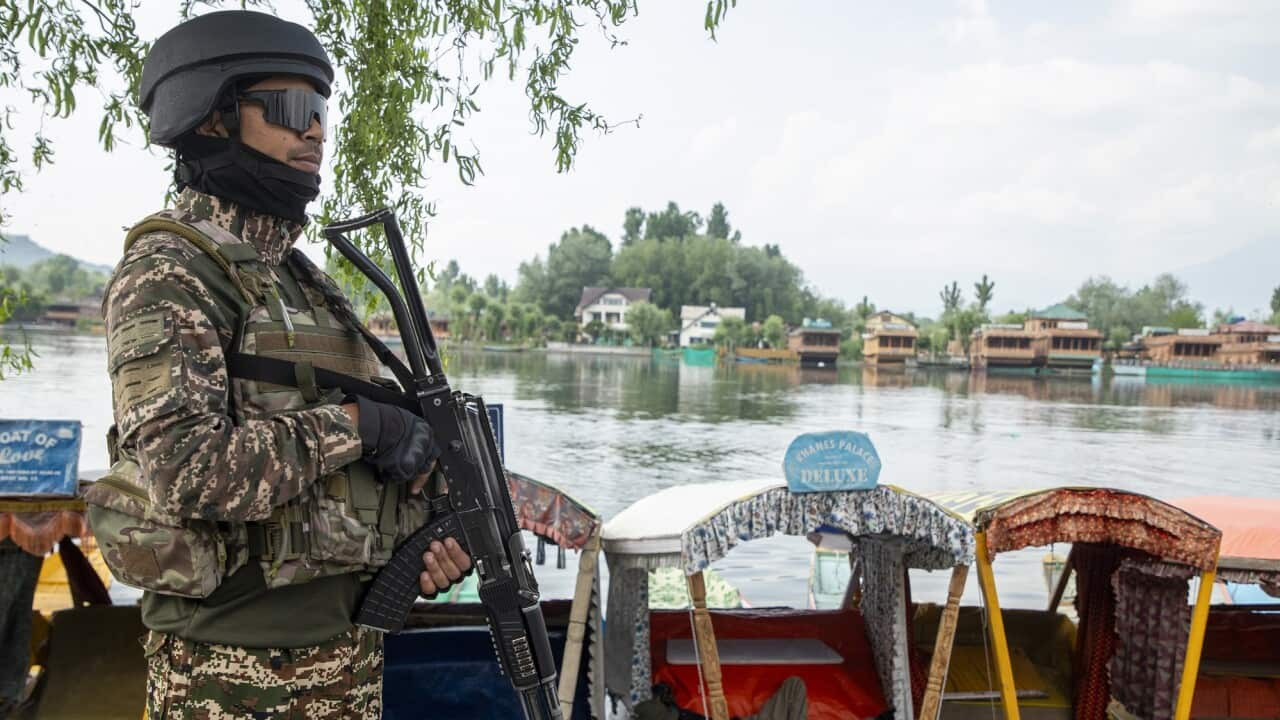TRANSCRIPT
With the third anniversary of Russia's invasion of Ukraine less than a week away, a rapid shift in US policy towards Russia is attempting to impose a swift end to the conflict.
As talks concluded between US President Donald Trump's foreign policy team and their Russian counterparts, the exclusion of both Ukrainian and European officials drew the ire of historic US allies.
In a major departure from the Biden administrations policy of isolating Russia, Donald Trump says if Europe and Ukraine are so concerned, they should have entered talks a long time ago.
But while concerns simmer over the exclusion of Ukraine, U-S Secretary of State Marco Rubio left the meeting confident in the progress.
“I came away today, convinced that they are willing to begin to engage in a serious process to determine how quickly and through what mechanism can end be brought to this war. Whether we can ultimately reach that outcome will obviously depend on every side in this conflict's willingness to agree to certain things."
The discussion, which took place in the city of Riyadh in Saudi Arabia, was the first such high-level U-S - Russian encounter since Moscow’s 2022 invasion.
US officials say they have reached an agreement to form negotiating teams, with the possibility of “historic economic and investment opportunities” for Russia if the conflict is brought to a successful end.
White House National Security Advisor Mike Waltz was also in Riyadh and says they are an important first step towards peace.
"The important thing is that we've started that process. And what the president did not find acceptable was an endless war in Europe that was literally turning into has turned into a meat grinder of people on both sides. So, that if you just think about -- just in a few months, President Trump has shifted the entire global conversation from not if the war is going to end, but just how it's going to end."
Marking a consequential shift in the relationship between Russia and the US, the discussion also addressed improving ties between the two.
But while US and Russian officials say they're ready to negotiate, Ukrainian and European exclusion from the talks is raising concerns about the details of what is up for negotiation.
Marco Rubio says concessions will have to be made.
“In order to bring an end to any conflict, there has to be concessions made by all sides. We're not going to predetermine what those are. We're certainly not going to negotiate this today or in a press conference, for that matter. But and there are other parties that have sanctions. The European Union is going to have to be at the table at some point because they have sanctions as well that have been imposed."
Currently, Russia controls around one fifth of Ukraine, with advancements gaining pace in recent weeks.
Russia has also signed a military agreement with Pyongyang, resulting in the deployment of more than 10,000 North Korean troops in Russia’s Kursk region.
Ukraine meanwhile, maintains a foothold in Kursk.
Among the demands made by Russia during the meeting was that NATO formally disavow a membership promise it made to Kyiv in 2008.
Russian Foreign Minister Sergei Lavrov says Ukraine's involvement with NATO was a huge mistake and says the United States is finally understanding Russia.
"We explained to our interlocutors today that we very carefully noted that the President Trump on several occasions had been the first of all Western leaders who said that dragging Ukraine into NATO was one of the main reasons of what is going on, it was to be one of Biden's and his administration biggest mistakes, and if Trump was the President then he would not allow this to happen."
Ukrainian officials are warning however that unless a peace deal includes strong Western guarantees, Russia will regroup and launch a new assault.
Ukrainian President Volodymyr Zelenskyy, who cancelled a trip to Riyadh after hearing of Ukraine's exclusion from the talks, says he was given very little information on the meeting.
Mr Zelenskyy says he won't accept the results of talks that Ukraine is not privy to.
"Russia has issued an ultimatum at this point. A reduction in the number of Ukrainian armed forces, recognition of the occupied territories of Ukraine as Russian territories, and they wanted to establish a pro-Russian leadership of the state, so that it would be completely under Putin's control. I have the impression that some negotiations are taking place now, and they are taking place with the same spirit, but they are taking place between representatives of Russia and representatives of the United States of America."
In 2014, a peace deal now known as the Minsk Agreements were brokered by Germany and France, aiming to reintegrate areas of eastern Ukraine led by Russian-controlled separatist forces.
The conditions of the deal were never fully implemented.
Speaking at the UN, Assistant Secretary-General for Europe, Central Asia and Americas Miroslav Jenča says they should serve as a warning not to rush through the process.
“The Minsk Agreements have taught us that agreeing on the ceasefire or the signing of an agreement alone do not ensure a durable end to the violence. Ensuring that the conflict does not reoccur and does not escalate will require genuine, genuine political will and understanding of its multidimensional complexity for Ukraine and for the region.”
As the United States shifts its approach to the conflict, the once ironclad relationship between the U-S and Europe seems increasingly fraught.
After the surprise US - Russia meeting was announced, French President Emmanuel Macron held his own emergency meeting on Ukraine with NATO and other European leaders in Paris.
The meeting in Paris concluded with talks over a possible deployment of peacekeeping troops to Ukraine, with the U-K and France indicating their willingness to send troops if necessary.
Now, Mr Macron says he will host another meeting on the matter later this week, but maintains that the support of Washington is critical.
“ What is at stake today is to give Ukraine the means to endure and enter any future negotiation in a position of power. Tomorrow, when the hostilities cease, what will be at stake is to give Ukraine guarantees against any return of the war on its territory and insurances for our own security. In this, Europe must play its full role as our armies already do in the Eastern flank within the NATO alliance."













